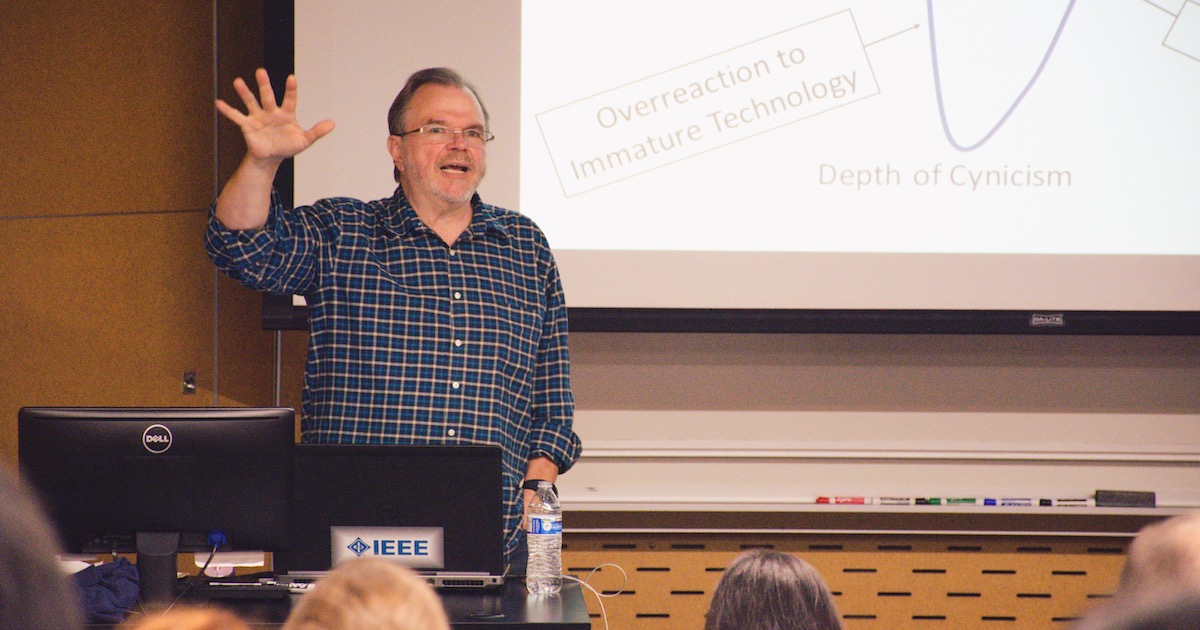 Neuroscience & Mind
Neuroscience & Mind
Computer Engineer Robert J. Marks Discusses the Perils and Promise of AI


On a new episode of ID the Future, Dr. Robert J. Marks, Distinguished Professor of Electrical and Computer Engineering at Baylor University and director of the Walter Bradley Center, argues that computer programs cannot be genuinely creative. These programs also won’t be able to experience consciousness, he says, never mind all the media hype. Download the podcast or listen to it here.
Speaking with host Beatris Rusu at the recent Summer Seminar on Intelligent Design, Marks concedes that a computer code can surprise us — as, for example, when playing the game Go, it makes an unexpected move. But when it does this, it’s following a rigorous algorithm that neatly explains the move. Marks explains that this isn’t true creativity. If the Go program learned chess without being programmed for chess, or if it invented chess, that would be creative. Marks then defines creativity: “A computer program will be creative if it responds with an output that is inexplicable, that can’t be explained by the computer programmer.”
He discusses deep learning and computational neural networks, their promise and limitations. As for quantum computing, it will be dramatically faster but he insists it won’t provide a leap into consciousness. The episode concludes with a discussion of how automation and AI will change the workplace over the next few decades.
Photo: Robert Marks teaching at the Summer Seminar on Intelligent Design, by Daniel Reeves.
